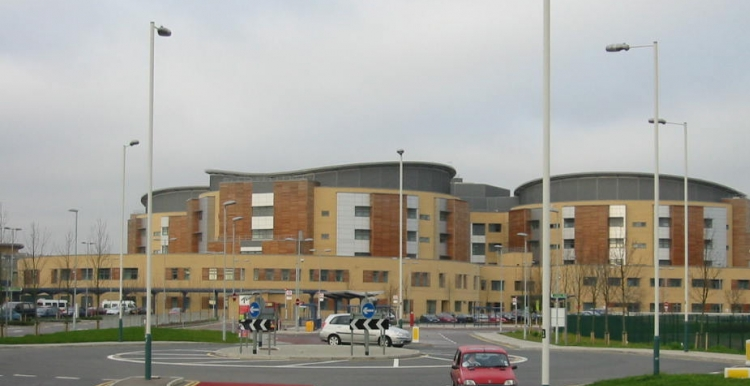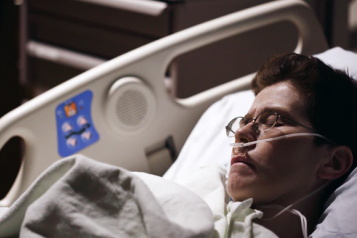CQC rates BHRUT as Requires Improvement

CQC visited urgent and emergency services; critical care and end of life care services across both main sites; and services for children and young people at King George Hospital.
CQC inspected three core services at Queen’s Hospital. The change in rating of these services did not affect the overall rating of the hospital which remained Requires Improvement. Caring remained Good and CQC rated safe and responsive as Requires Improvement. However, well-led Improved to Good. CQC rated the end of life care services at the hospital as Outstanding.
At King George Hospital CQC inspected five core services. The change in rating of these services did not affect the overall rating of the hospital which remained Requires Improvement. Safe, responsive and well-led remained Requires Improvement and caring remained Good. However, the effective domain improved to Good. Following CQC’s assessment of well-led, inspectors rated well-led for the trust as Good overall.
There was some outstanding practice at the trust. It had introduced the nursing associate role to the organisation which was proving successful. This role is designed to help bridge the gap between health and care assistants and registered nurses. Seventy trainee nursing associates were presently employed by the trust, across several specialities which had significantly improved staffing levels.
The trust had enlisted five experienced senior nurses to provide mentoring and coaching support for newly qualified nurses, allied health professionals and junior doctors. This was the first scheme of its kind in the country and received national recognition.
The trust was further acknowledged nationally for its commitment to carbon reduction and the organisation’s ‘sustainability team’ had received two national sustainability awards.
At Urgent and emergency care, King George Hospital, staff demonstrated a culture of vigilance and professional curiosity to keep patients safe. Staff displayed good awareness of different safeguarding issues and took appropriate actions. The hospital had ED safeguarding advisors who contributed to safeguarding patients in real time, they supported and empowered staff to assess and manage risks.
At critical care, Queen’s Hospital, the department had recently recruited two fully funded research nurses to support a research fellow in carrying out academic study and clinical improvement on the wards.
The specialist palliative care team and end of life care team extensively engaged with specialist teams around the hospital to meet individual patient need. They also linked in to community teams to provide an integrated service.
There was a clear strategy for end of life care that was based on published best practice and linked to identified priorities. The end of life action plan was aligned to the end of life care strategy, which was monitored effectively.
At Outpatients, King George Hospital, the service had a dedicated ‘patient partner’ who was also a trust volunteer. Their role was to act as the voice of the patient and represent patient views at a range of trust meetings and forums.
However, there are areas where the trust must improve, including:
- Ensuring that the paediatric emergency department at Queen’s Hospital is sufficiently staffed by suitably qualified paediatric trained staff.
- Ensuring critical care action points for never events are implemented in a timely manner with improved communication to staff.
- Ensuring that systems and processes in outpatients are established and operated effectively to enable the trust to assess, monitor and improve the quality and safety of the outpatients’ services.
CQC rated the trust’s management as Good in the well-led category. Senior leaders had the experience, capacity and capability to ensure that the vision and strategy of the organisation could be delivered and risks to performance addressed.
Overall there was strong collaborative working among the divisional directors. The trust’s relationship with commissioners and stakeholders had improved and there was evidence of effective collaborative working.
Staff described how the culture within the organisation had moved on since the last inspection. Some staff attributed this to a more stable senior leadership.
Professor Ted Baker, England’s Chief Inspector of Hospitals, said: “Barking, Havering and Redbridge University Hospitals NHS Trust is definitely moving in the right direction. Although they are still rated Requires Improvement overall, I note that they were rated Good in three of the main CQC categories, for being effective, caring and well-led.
“There were also a number of areas where we saw some outstanding practice which was very encouraging. I would like to see the trust striving to improve safety and responsiveness in a bid to attain a Good overall rating and most importantly better care for its patients.”
CQC has also published the trust’s Use of Resources report, which is based on an assessment undertaken by NHS Improvement. The trust has been rated as RI for using its resources productively – previously it was Inadequate. The combined rating for the trust, taking into account CQC’s inspection for the quality of services and NHSI’s assessment of Use of Resources, is RI.

